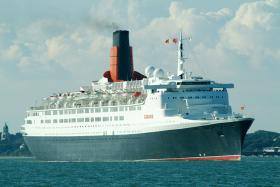|
The Commission proposals were limited to the implementation of a "Marpol" agreement on a 1.5 percent sulphur cap and only in three special zones: the North and Baltic seas and the English channel.
The restrictions would come in 12 months after the law enters into force.
But the parliament has voted for a lower sulphur limit, to take effect six months earlier, and to be extended to all EU waters by 2010. Furthermore, there would be a second stage of cuts, to 0.5 percent sulphur, applicable from 2008 in the three pollution control zones and on ferries, and from 2012 in all EU waters.
The limits would apply to shipping registered anywhere in the world and regardless of their originating port.
The parliament's position could well spark conflict with EU ministers, and if confirmed in law then with major flag states at the International maritime organization.
Sources say EU governments have been slow to tackle the draft directive under the Greek presidency, a major shipping state that reportedly views even the Commission proposals as excessive.
In other business this week the parliament backed European Commission proposals for earlier prohibition of single hull tankers entering EU ports. An attempt to ban them from entering EU waters at all was rejected.
Meanwhile, the assembly backed a ministerial deal on implementing the Cartagena Biosafety Protocol with regard to trade in genetically modified organisms, with minor amendments agreed in advance with the council.
Parliament also approved at second reading an electricity market liberalization law that will bring in tougher energy mix disclosure rules. MEPs still want the council to accept slightly stronger requirements with more information on the environmental impact of power generation.
Top
|
